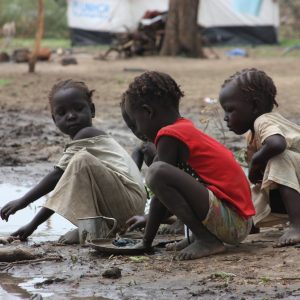The Stream, May 31: Record Harvests In Southern Africa Unlikely To Help Drought-Hit East
The Global Rundown
Plentiful rain and record corn crops in southern Africa are unlikely to ease food shortages in drought-hit East Africa due to trade barriers. The World Health Organization criticized the global tobacco industry for perpetrating environmental damage. Scientists found that groundwater springs in Africa’s Rift Valley likely shaped human evolution and dispersal. Monsoon rains have arrived in India, a good sign for the country’s harvests. New York has promised millions of dollars to aid residents affected by flooding along the shores of Lake Ontario.
“All producers should be required to compensate for the environmental harms caused by deforestation, water use, waste, etc through offsets in order to ultimately reduce the long-term ecological harm their business causes.” –Excerpt from a report released by the World Health Organization that analyzed the environmental footprint of the tobacco industry. The report also criticized the industry for a lack of publicly available environmental data. (Reuters)
By The Numbers
15.63 million metric tons Record amount of corn that South Africa expects to harvest this year after receiving ample rainfall. Zambia is also predicting a record harvest, but the surplus in southern Africa is unlikely to ease food shortages in drought-hit East Africa due to trade barriers. As a result, much of the corn could go to waste. Bloomberg
In context: Conditions deteriorating rapidly in drought-stricken Somalia.
$7 million Amount the state of New York has pledged to help residents affected by flooding along the shores of Lake Ontario, which is experiencing its highest water levels in a century. Rochester Democrat and Chronicle
In context: New water level management plan for Lake Ontario tests attitudes toward the environment.
Science, Studies, And Reports
Groundwater springs that persisted even during extremely arid times were likely essential to the survival of prehistoric humans living in Africa’s Rift Valley, according to research published in the journal Nature Communications. Scientists suggest that these spring networks could shed further light on human evolution and dispersal. The Conversation
On The Radar
Monsoon rains have arrived several days early in India and are expected to reach 96 percent of the long-term average this year. The monsoon supplies water to approximately half of the country’s crops. Bloomberg
A news correspondent for Circle of Blue based out of Hawaii. She writes The Stream, Circle of Blue’s daily digest of international water news trends. Her interests include food security, ecology and the Great Lakes.
Contact Codi Kozacek




